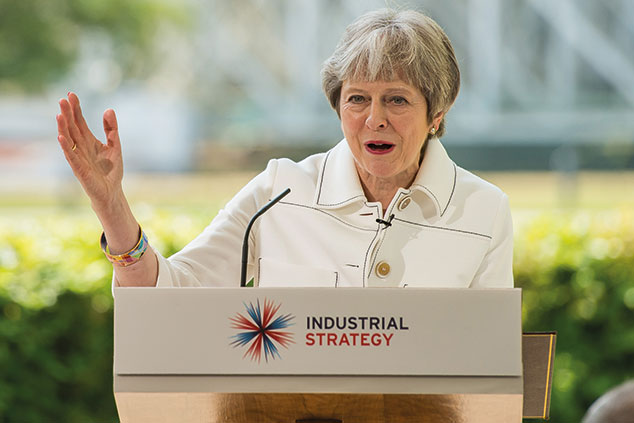
Speculation about a snap election could turn into reality, says Matthew Partridge.
Less than a year after Prime Minister Theresa May’s decision to call a snap general election “rebounded spectacularly”, there is already talk of another one, says Henry Zeffman in The Times. Tory Brexiteer MPs “are reportedly so worried about the prospect of Brexit deadlock in the Commons that they have warned their constituency parties there may be an autumn poll”. May’s message would essentially be a repeat of last year’s: “Back me to deliver the best Brexit deal”.
It’s all but inevitable
An election within the next 18 months is looking ever more likely, argues Rob Wilson in The Daily Telegraph. Political uncertainty is starting to “damage the economy, more so than Brexit”. Business leaders will be increasingly eager for someone to be given “a decisive mandate to lead the country – whatever the direction”. Local elections confirmed that many voters fear Labour leader Jeremy Corbyn’s “nasty brand” of Marxism.
As Brexit negotiations proceed and the problems mount, it will become more difficult – as well as more vital – to keep Brexit supporters on side. “So to Brenda from Bristol, who famously declared ‘not another one!’ when told of the 2017 general election, I am sorry to say: get ready, because another one is heading your way.”
That may be a little premature, says Katy Balls in The Spectator. There are plenty of reasons why an election is unlikely, even ignoring practicalities such as the Fixed-term Parliaments Act and the fact that May’s hands are already rather full. Brexit day is just ten months away. Why would Brexiteers, many of whom have campaigned to leave the EU for decades, risk Brexit – particularly when a general election could lead to the “most left-wing Labour prime minster ever” being in charge of the final stretch of negotiations? Moreover, the Conservatives have “learned the hard way that voters dislike unnecessary elections”.
Although it’s not impossible that an election will take place, the “vast majority” of Conservatives will be doing “anything they can” to prevent one, “no matter how difficult the Brexit negotiations get”. Boris Johnson, a leading cabinet Brexiteer, has warned May against calling one, reports Bloomberg, saying the British public “deserve a break”.
Pros and cons of an early election
But while a snap election might not solve the Tory Leavers’ central problem – “the shortage of parliamentary numbers for their preferred exit” – it is still in their interests to have a vote sooner rather than later, says Janan Ganesh in the Financial Times. The economy is growing and Labour “still wants to leave the single market”. These favourable circumstances could change.
A downturn could “weaken the animal spirits behind Brexit”, and Leavers cannot treat Labour’s position as an “immovable fact”. Most Tories “dismiss the weekend speculation out of hand”, but the fact is, they are “in reasonable shape” after the local elections and surveys show that voters trust them more than others to negotiate Brexit. It may turn out that “we are all Brenda now”.
Crackdown on Russian oligarchs
“The life of a Russian oligarch in London isn’t what it used to be,” says the Financial Times. Roman Abramovich has returned to Moscow following “unexpected delays renewing his UK visa”. It’s possible he’s become “a victim of… political tensions between the UK and Russia”. There are plans to carry out more stringent background checks on those who “buy their way into Britain” – a parliamentary group wants action against allies of Russian president Vladimir Putin and an end to the “no-questions-asked hospitality” that draws many rich Russians to the UK in the first place.
I can’t see it happening, says Anastasia Nesvetailova in The Independent. Britain welcomes capital from far “less savoury” regimes and Brexit already “endangers the main source of liquidity to the City – the EU”. Why jeopardise this “second pool of funds”? Any regulatory change that targeted Russians would mean overhauling a whole set of corporate and legal norms that “govern the UK’s financial system”.
It wouldn’t be that damaging, argues Juliet Samuel in The Daily Telegraph. Cracking down on Moscow might “trigger a difficult few years” for a small tribe of bankers, lawyers and estate agents who “have chosen to specialise in a highly risky emerging market”, but it “presents no existential threat to our financial centre and would incur no mass losses of jobs or tax revenues”. London must remain open to Russians engaged in legitimate activities, but the City should prepare for
Britain to turn the screws on others. “We can hardly expect other countries to come to our defence if we won’t defend ourselves.”